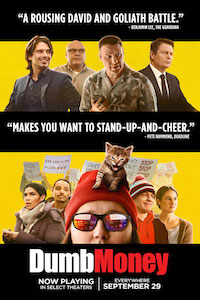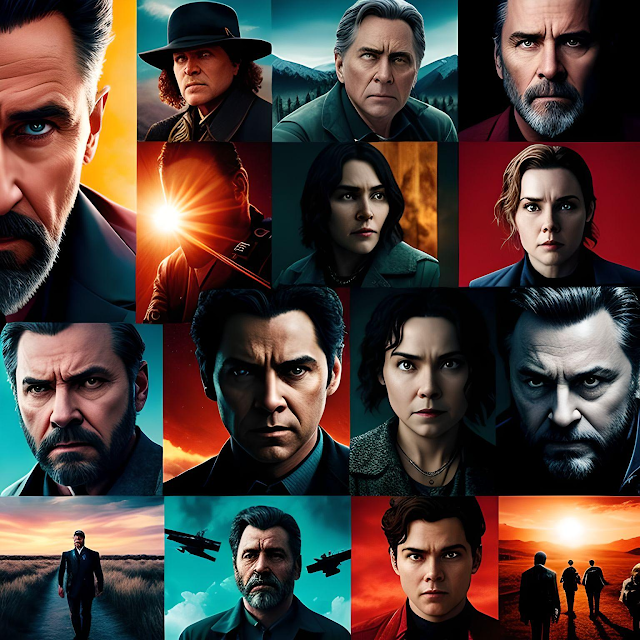"Mass" is a small movie about a huge issue: school violence. Utilizing a cast of seven and a single location, longtime actor Fran Kranz (Dollhouse, The Cabin in the Woods) makes his debut as writer/director with this harrowing story of two couples who meet to discuss a crime that has forever changed their families. We never see the crime itself, but the piercing dialogue and emotionally raw performances paint an indelibly vivid picture of its aftermath in this must-see film.
"Mass" opens with a nervous energy that has us holding our breath for what is coming, and deservedly so - something crucial and delicate is going to take place, and everything about the space where it will happen must be perfect. Church caretaker Judy (Mr. Mercedes) is about to host a meeting between two couples who have not met face to face since the day their children perished in a school shooting.
Soon the four will be cloistered in a small church meeting room to face each other and relive the most terrible moment of their lives. The twist: Jay (Jason Isaacs, The OA) and Gail (Martha Plimpton, Raising Hope) lost their son in the classroom attack, while Linda (Ann Dowd, The Handmaid's Tale) and Richard (Reed Birney, "Lost Girls") are the parents of the shooter.
It seems impossible to imagine ourselves in the position of either set of parents, but Kranz stages his film like a black box theater production, with a resulting intimacy that strips away the potentially sensational aspects of the crime to focus on personal impacts. Likewise, the film's dialogue sounds like a play: it's stagey, but this isn't a bad thing. "Show, don't tell" is usually the filmmaker's mantra, but the opposite is true here and it is incredibly effective. Rather than being shown what happened we conjure it for ourselves through the characters' recollections, and with that comes a terrible empathy for each.
"Mass" debuted at the Sundance Film Festival in January and continued on the festival circuit until its limited release earlier this month, and during that time it has garnered plenty of Oscar speculation for its four leads. All are at the top of their game here, and it is a testament to each that their characters are so fully realized in such a limited setting.
Plimpton and Birney are particular standouts, with each exploring multiple shades along the emotional spectrum. Plimpton's Gail tries to modulate herself but eventually demands the answers she is longing for - how could Linda and Richard not see the signs of impending violence in their son?? - before abandoning herself to agonizing grief, while Birney approaches Richard as a stoic who appears divorced from his feelings about his son's crime until the blistering moment when he has to inhabit and defend his own pain. Isaacs and Dowd are exemplary as well, and Kranz's well-balanced screenplay allows each of the four leads a generous opportunity to shine.
"Mass" is an actors' showcase and well worth seeing for that reason, as well as for the notable way that Kranz takes a hopelessly tangled, politically fraught topic and strips it down to a rudimentary human experience. He makes it evident early on that "Mass" won't be dwelling on the fractious debate around crime, firearms, and mental health in the US by having his characters bring it up and then put it aside, clearly frame the ensuing discussion around personal experiences rather than political arguments. With this approach, Kranz and his cast ensure that the experience of the movie echoes the goal of its story: to understand others' perspectives.
2021 Philadelphia Film Festival: Mass Movie Review By Lora Grady












0 comments:
Post a Comment